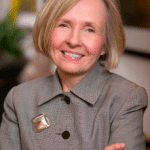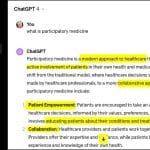David Weinberger, a fellow at the Harvard Berkman Center, speaks eloquently on the way digitization of information is changing the way we define knowledge. In a recent presentation he made at a Library of Congress conference he argues that the increasingly universal availability of on line information and, in particular, the rich web of interacting and social networking that is unfolding in the blogosphere is changing knowledge itself and what the public comes to accept as true and valid.
One interesting example David gave in his presentation related to his experience of shopping for a new washer and dryer. He went to the Kenmore site, which contained the usual marketing hype, and then went to a forum where customers commented on it. He noted that he relied more on the public comments of people he didn’t even know to a greater extent than the information on the company’s website.
As social networking moves into the medical world, it will be interesting to see how this will change the way we view medical knowledge. As a physician who has been active in the online world, I am seeing how this works! Patients often don’t experience illness in a way that anyone has ever written about, and are very willing to share that with others online. This actually becomes a new method of medical research and documentation.
Our late dear friend, Tom Ferguson, MD, to whom this site is dedicated, coined the term “e Patients” to define the people who were empowered to find medical answers for themselves, rather than rely on any single individual’s opinion or interpretation. Then, using their own experiences and gaining from the sharing with others, they decide what is the best course of action.
This concept blows the minds of most traditional physicians, who still think in terms of conventional Doctor-Patient roles and are invested in the preeminence of the physician’s preistly function. But, my sense is that David Weinberger is right. The horse is out of the barn. Web 2.0 has launched a revolution of medical blogs, forums, doctor/patient emails, has empowered and informed patients who are educating themselves with web searches, and medical knowledge will be built over time by this professional/private partnership.
Physicians will learn more than ever from their patients. Patients will begin to increasingly teach each other. Information that is not quite on the mark will be perfected and modified in the fiery furnace of public interchange. It will be a wild, exciting ride for those of us who are ready to “strap it on”.






The e-patient has gone beyond group therapy. It is now world therapy and information that has been “tried and found true” is exhanged from the patient’s point of view and less from how many mice survived conventional treatment.
I believe this is an important turning point in the patient-physician role of treatment. Doctors now have the oportunity to learn from their patients in a way that was never possible before the e-patient explosion.